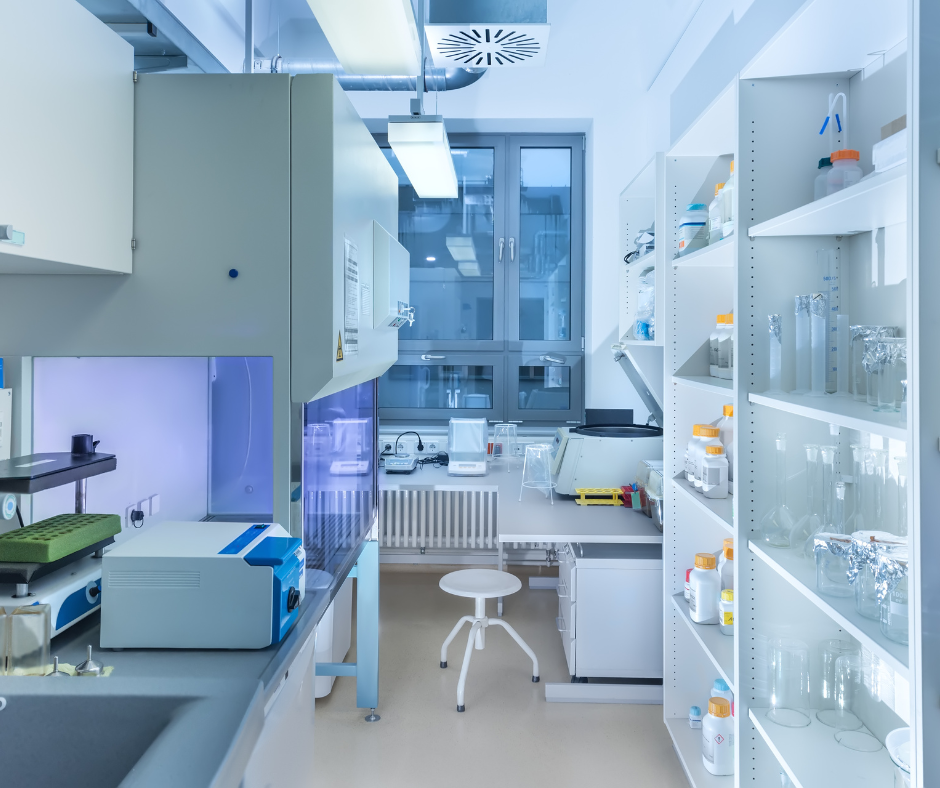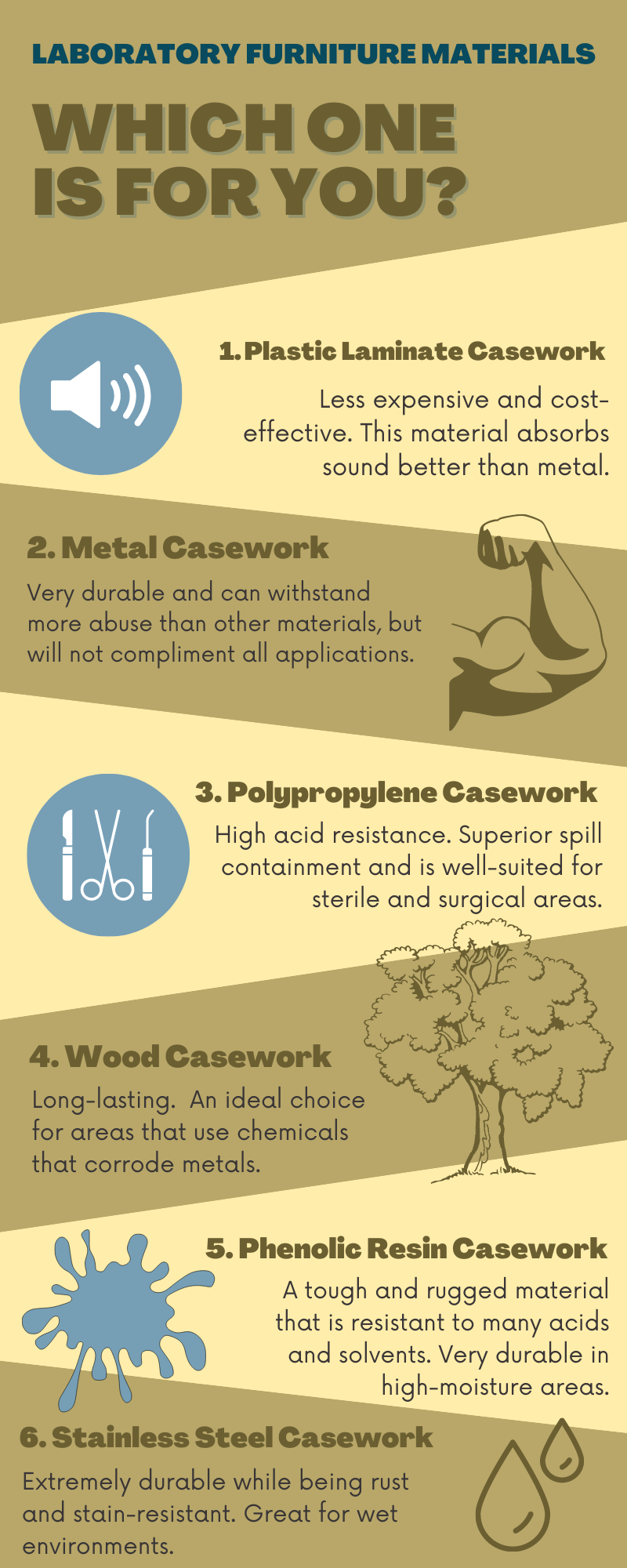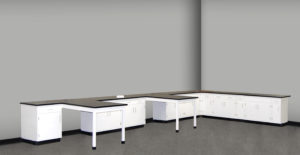 Laboratories are designed for lab personnel to achieve their professional endeavors. Many laboratories feature specialized equipment (e.g. heating equipment, extraction apparatus, fume hoods, cleaners, etc.) to carry out specific, highly-defined processes. But one common feature among laboratories is the furniture. Laboratory furniture is designed with materials that are conducive to the work being performed and designed in a manner that can withstand the rigors of lab environments. It is important to choose the right furniture material and pay attention to surface choice as this impacts the longevity of the furniture investment. The most common laboratory furniture materials are:
Laboratories are designed for lab personnel to achieve their professional endeavors. Many laboratories feature specialized equipment (e.g. heating equipment, extraction apparatus, fume hoods, cleaners, etc.) to carry out specific, highly-defined processes. But one common feature among laboratories is the furniture. Laboratory furniture is designed with materials that are conducive to the work being performed and designed in a manner that can withstand the rigors of lab environments. It is important to choose the right furniture material and pay attention to surface choice as this impacts the longevity of the furniture investment. The most common laboratory furniture materials are:
Plastic Laminate Casework
Easy to manufacture, plastic laminate casework is a less expensive and cost-effective material. Plastic laminate offers a wide variety of colors, textures, and patterns. It is an attractive choice and comes in handy in situations where design is important. Also, this material absorbs sound better than metal, so, in situations that require a quiet atmosphere, plastic laminate may be a great option.
Metal Casework
Metal provides a sturdy, cost-effective option and is frequently used in commercial markets. It is very durable and can withstand more abuse than other materials, but will not complement all applications. Metal is very utilitarian, easy to maintain, and makes cleaning a breeze.
Polypropylene Casework
Polypropylene materials provide high acid resistance. With no metal exposed on polypropylene furniture, there will be no worries about rust or corrosion. Polypropylene casework also provides superior spill containment and is well-suited for sterile and surgical areas. As a stain-resistant material, polypropylene retains its strength and color for many years.
Wood Casework
Wood casework adds a touch of warmth to any environment as it is long-lasting and provides many options. From maple to oak, by finding the right finish you can secure a professional look for your laboratory. Wood materials are constructed using time-honored construction techniques leading to high-quality products. Wood is an ideal choice for any application that uses chemicals that corrode metals or are that non-conducive to metals.
Phenolic Resin Casework
Phenolic Resin is a durable and rugged material that is resistant to many acids and solvents. They can come in a variety of color choices and are very durable in high-moisture areas. Also rust-resistant,
phenolic resin materials are easy to clean, and maintain, and are virtually maintenance-free. Resistant to most bacteria and fungus growth, these are suitable for many areas but commonly found in lab/hospital settings including operating suites, sterile areas, nurse stations, and dialysis treatment areas.
Stainless Steel Casework
Great for wet environments, stainless steel casework is extremely durable while being rust and stain-resistant. This worksurface provides excellent chemical and heat resistance and is easily cleaned. Adaptable to any color scheme or decor, stainless steel casework is a popular choice in many biological, biomedical, pharmaceutical, and hospital labs.
Related: Things To Consider Before Purchasing Laboratory Furniture
The style of furniture is one thing, but furniture materials will determine the durability and effectiveness of your laboratory. Since every laboratory is different and the work being performed is diverse, it is imperative to select the proper materials for your unique environment. A knowledgeable lab design professional can help you make the choice that is right for your situation, and your budget. Contact National Laboratory Sales today and speak with a design expert who will listen to your needs and find the perfect equipment and casework for your laboratory.


